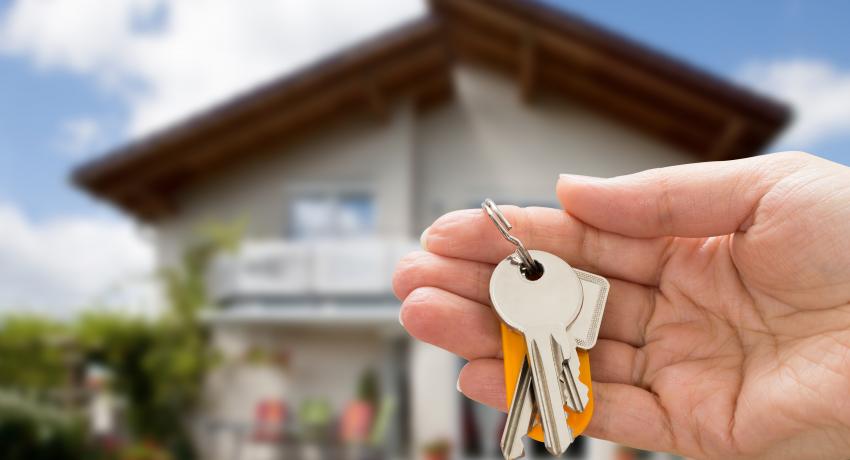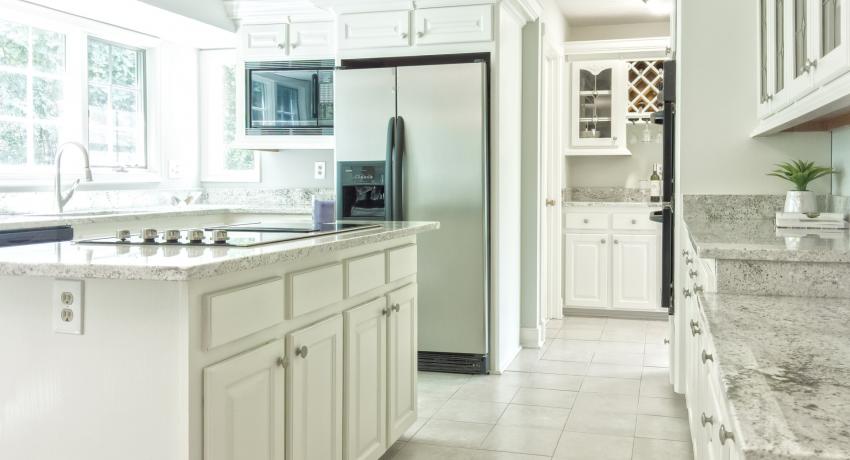
How Much Should You Save Before Buying a House?
Buying a home is one of the biggest purchases most of us will ever make. Saving enough money to buy a house can feel like an overwhelming goal. However, if you put a savings plan in place, you can take steps towards putting money away for a down payment on a new home. Determining how much you’ll need for a down payment is the first step. Here’s how you can figure out what your home savings goal should be.
How much house can you afford?
If you’re looking to buy a house, it’s best to begin by figuring out how much you can afford to spend. It’s easy to get caught up in the excitement of buying a new home and fall in love with a house over your price range. Knowing your budget and sticking to it will make the home-buying process go smoothly. As a general rule, most homeowners can afford a mortgage that’s two times to two and a half times their gross income. For example, if you’re household earns $150,000 per year, you could afford a mortgage that’s between $300,00 to $375,000. This is just a general guideline. Your monthly spending habits can make a difference in how much home you can afford. Determine how much home you can afford with our Home Affordability Calculator. You can also see how different down payment amounts can affect your monthly mortgage payment.
How much do you need to save to buy a house?
Most people think you need to put down 20% of the purchase price for a down payment, but that’s actually not the case. This idea comes from the Private Mortgage Insurance (PMI) rule that most lenders have. When you buy a home, if you have less than 20% down, you may need to pay for PMI which protects the lender if you ever default on the loan. However, 20% can be a difficult savings goal to reach. For example, if you were to put 20% down on a home costing $400,000, you would need to save $80,000 for your down payment. Depending on your timeline and financial situation, this could be a big hurdle to jump. So, keep in mind, even though a 20% down payment would save you money over the life of your mortgage loan, it’s not a requirement. You should set a savings goal for your down payment that works for your budget. If you’re wondering how long it will take you to reach your down payment savings goal, you can use our Save Towards a Goal Calculator. This might also help you determine what amount you’re capable of saving.
Depending on your income and credit score, you may be eligible for a conventional loan with as little as 3% for a down payment. There are even mortgage loan options available that require no down payments; such as a U.S. Department of Agriculture (USDA) loan which is designed to help low-income individuals living in designated rural areas and a Department of Veterans Affairs (VA) loan which is designed to help those currently serving in the military or veterans. Be sure to research all mortgage loan options ahead of time. Partner Colorado can help you find the best mortgage options available to you. For a limited time, you’ll pay no origination fee on your mortgage loan when you purchase a new home. The origination fee is typically one percent of your total loan amount. For example, if your loan is $300,000, your origination fee would be $3,000. That’s money you could put towards your down payment instead.
Save for additional home-buying expenses
You’ll also want to factor in other expenses that come along with buying a home. This could include moving costs, closing costs, home appraisal, home inspection, new furniture and necessary home repairs. Give your budget some space to account for these types of costs.
Start your own house savings fund
Open a savings account specifically for your home’s down payment. Keeping your down payment funds separate from your other accounts, will make you less tempted to take money from it. You could also use this savings account to include additional home-buying expenses. Putting a larger down payment on a house can help you get a better interest rate and help lower your monthly mortgage payment. Make sure to save up as much as you can before looking at houses in order to be prepared to make an offer on your dream home.









